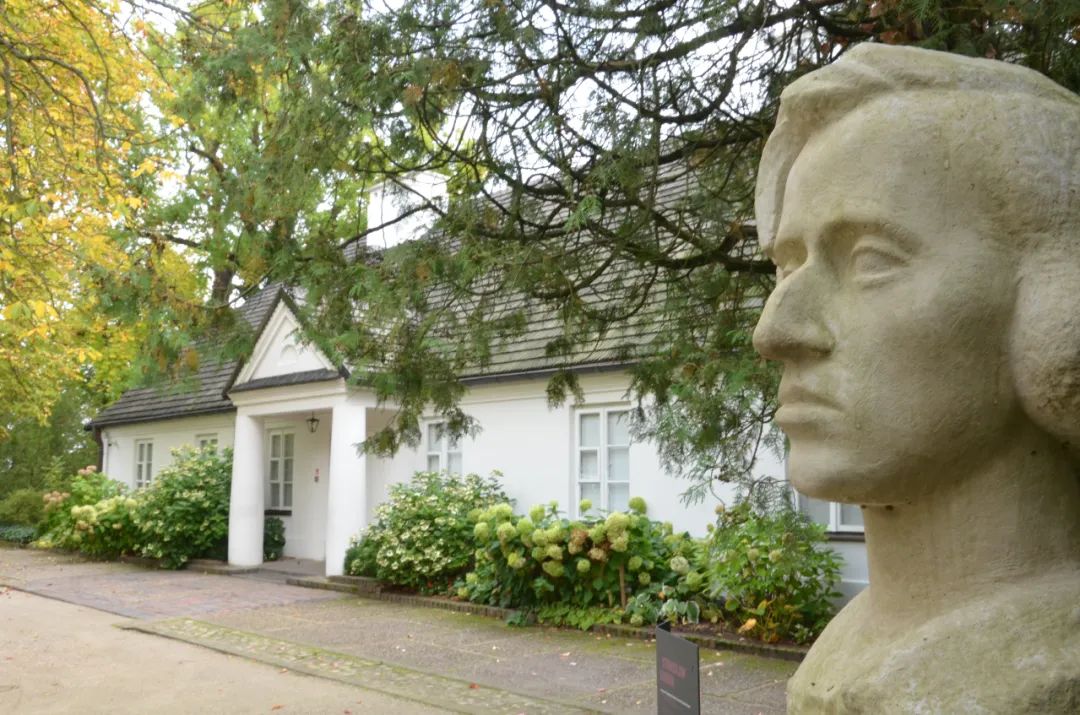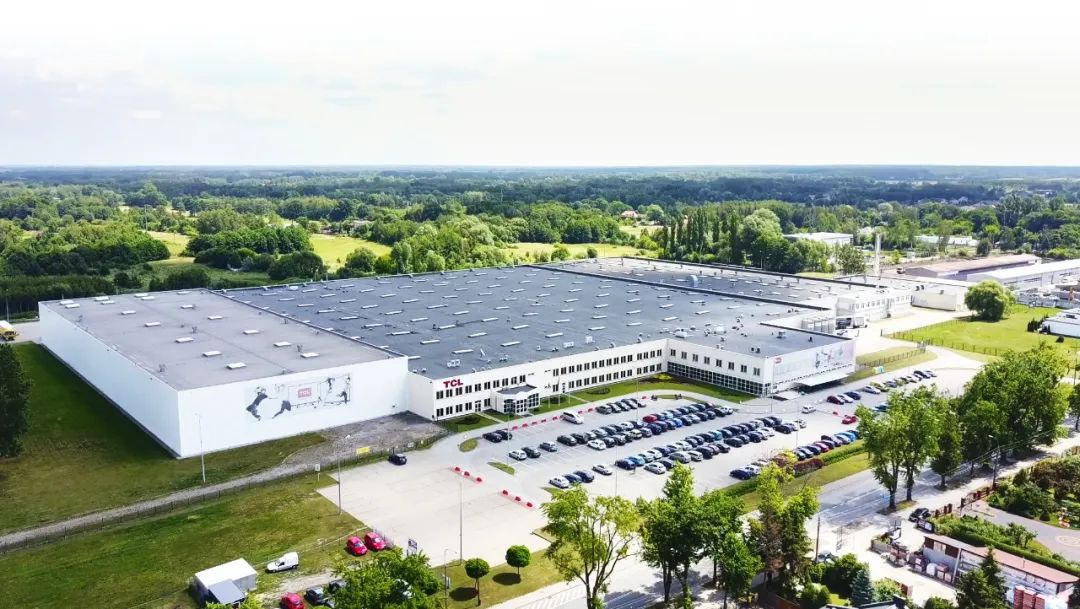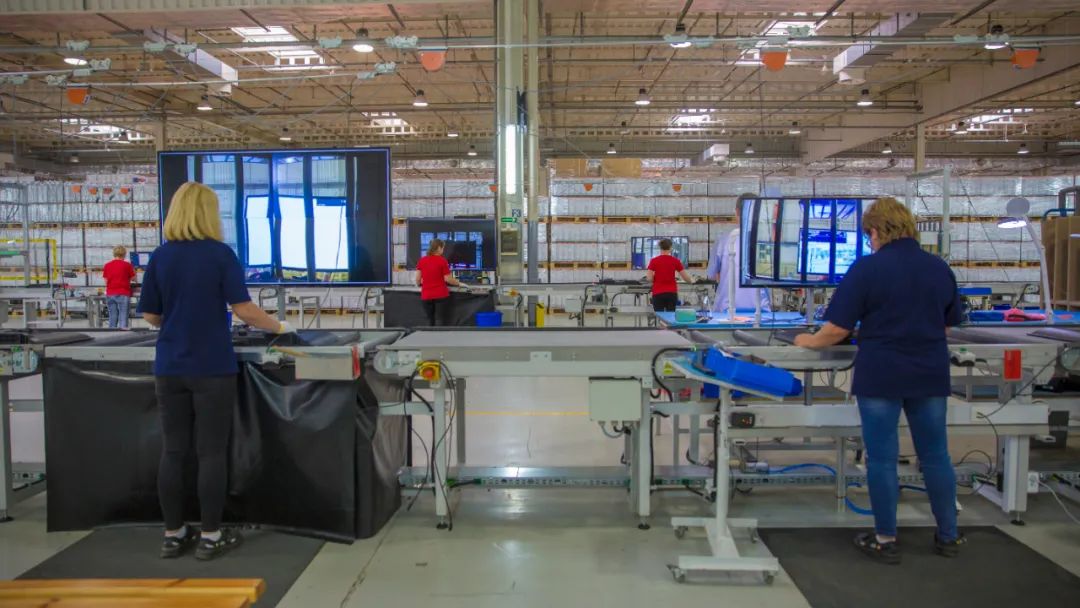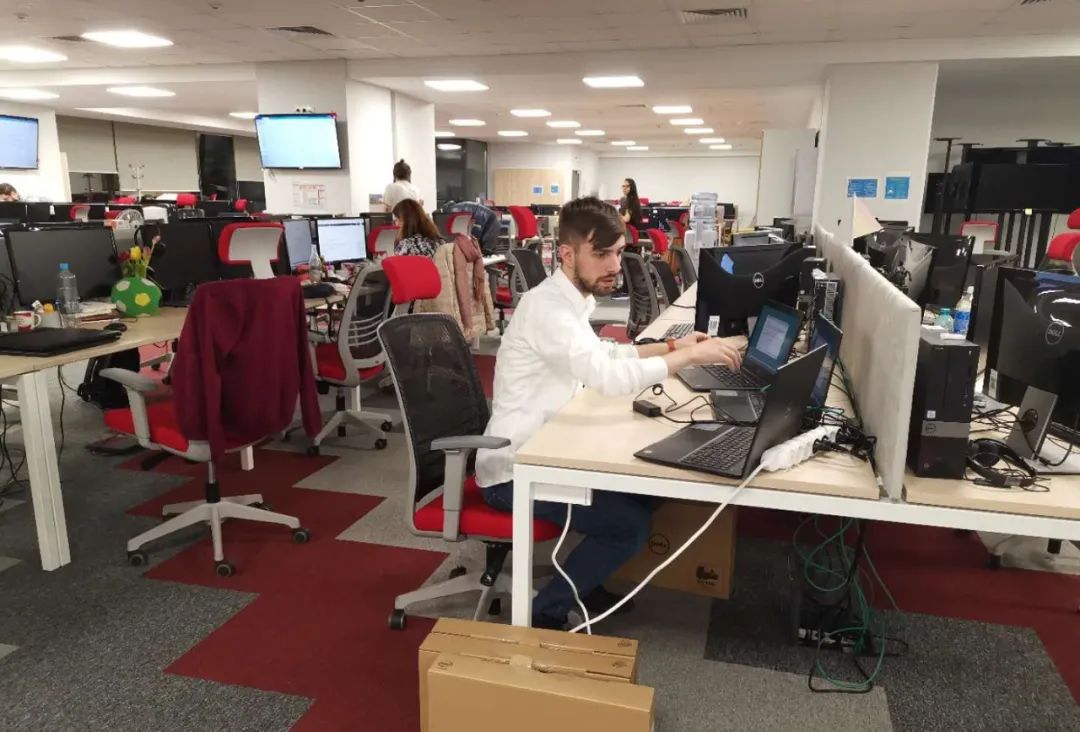Intelligent Manufacturing Makes Life Better
by Zhang Yuwen
[Poland] Frédéric Langin
Zyrardow is a typical industrial city in central Poland, not far from the birthplace of the great Polish composer Frederic Chopin and only 50 kilometers away from the capital Warsaw.

It used to have one of the largest textile factories in Europe in the 19th century, which became a TV manufacturing plant of French electronics company Thomson in the 1990s. In the early 2000s, after TCL, one of China's major TV makers, acquired Thomson's color TV business, the plant passed into TCL's hands and became TCL's largest manufacturing center in Europe.

The manor house in the town of Zelazowa Wola, where Frederic Chopin was born in 1810
More than Made-in-Poland Products
In the automated and intelligent TCL Operations Polska, there are few Chinese faces, less than ten among the several hundred employees. Some of the local employees are from Thomson's TV factory. These veterans, who have been with the factory for an average of 12 years, regard TCL as their home. It has given them a stable and well-paid job and life is good. Since the plant was acquired more than 10 years ago, very few of the local employees have quit.
The plant, the largest in Zyrardow, produces 3.8 million TV sets of different sizes every year and contributes USD8-10 million as tax revenue to the local exchequer.
Since consumers always have new needs, to meet the individual needs of European consumers, TCL has upgraded its technology and built up a powerful brand of TV products. In 2013, it became one of the first Chinese companies to partner with the famous Canadian-American entertainment technology company IMAX to develop an affordable home theater system for consumers, making the long-cherished wish of those to enjoy the cinema at home come true.

An aerial view of TCL Operations Polska
The plant's superior logistics ensures the delivery of made-in-Poland TV sets from here to all parts of Europe. The Zyrardow plant works directly with TCL's plant in the city of Chengdu in southwest China, creating an optimal supply chain. This has been possible due to the China-Europe Railway Express, developing fast since the launch of the Belt and Road Initiative in 2013. The railway today connects Chengdu with Lodz in Poland. In the past it took 38 days to send spare parts and accessories from China to Poland by sea, but now, the supply chain is as short as 14 days with the China-Europe train services.

The modern and efficient production section
The plant makes full use of Poland's location at a geographic crossroads in Europe. It can deliver packaged products to Frankfurt and Paris in one day, to most European countries in three days, and to Portugal, the farthest, in just four days. This ensures that made-in-Poland products are distributed around Europe.
In addition to made-in-Poland products, TCL brings to Poland its expertise in production and management, technology research and development, and human resource development in the field of industrial manufacturing.
The plant has reformed its quality inspection system, improved quality control efficiency, and introduced automatic packing machines and other innovative methods from China. By combining China's industrial manufacturing capabilities with local conditions, it has remarkably enhanced the local level of industrialization.
Mutual Complementation Through R&D
Before Cezary came to work at TCL Research Europe, he had no connection with China. But it is different now.
The research center is about 50 kilometers away from TCL Operations Polska. In addition to daily R&D tasks, the center also provides technological backup for the company's long-term development, especially in the field of artificial intelligence, including computer vision, natural language processing and big data analysis.
Often there is a big gap between scientific research and industry, and it is impossible to bridge it without appropriate tools. So the center regularly sends its staff to China for study and exchange to make up this deficit in industrial application knowledge and keep abreast of the latest scientific advances and products.
In 2019, Cezary went to TCL's research center in Ningbo in east China on a three-week exchange program, which equipped him with the means to solve problems he had earlier found difficult.
Before the exchange, due to differences in language as well as software operations, email communication was not very effective and the Ningbo team could not provide immediate technical support. But with face-to-face communication, discussions and solution testing, Cezary learned how to communicate effectively and solve problems independently in similar situations.
He was struck by China's rapid development. The fast traffic on the streets and the wide range of electronic products in the shops left him highly impressed. When he returned to Poland, he told his colleagues about the things he had seen in Ningbo and hoped they too would get a chance to visit China.
Artificial intelligence is the key technology to realize industrial transformation and upgrading. A company that masters this technology has the core technological competence for future industrial competition. TCL Research Europe not only provides services to companies, but has also built a platform for exchange of ideas, knowledge and technology between China and Central and Eastern Europe. Besides, it trains local high-end technical personnel in collaborative work.
The center cooperates with University of Warsaw and other local colleges to produce more pioneering young Polish scientific research talent. It has received the PAIH (Polish Investment and Trade Agency) Award in the category of modern technologies.
Ready on the Hotline
To remain competitive in the European market, quality products alone are not enough. Both distributors and customers demand all-round quality service as well.
After nearly eight months of preparation, the TCL's Global Customer Care Services in Europe opened in Romanian capital Bucharest in December 2019. It is TCL's second overseas customer care services center following the first in Manila, the Philippines.
The European center has more than 120 employees, including over 90 customer service agents and 20 management staff and IT support specialists. It offers end-to-end customer interaction services covering the whole of Europe and most TCL products, such as smart TVs, smart phones, stereos, air conditioners, refrigerators and small appliances. Customer service agents support customers by answering their questions over the phone, helping increase the speed of the company's response.
When the novel coronavirus disease (Covid-19) broke out in Europe at the end of February 2020 and spread rapidly, European countries began to go under lockdown one by one to prevent and control the epidemic. The Romanian Government issued a national emergency ordinance in mid-March and the Global Customer Care Services faced the specter of closure.
An emergency plan was needed since life would continue to move on even under lockdown. What if customers had problems while using TCL products and there was no one to answer their queries? If there was a problem, there needed to be a solution.
The customer care services management rapidly made a plan for working from home, launching a new model that ensured epidemic control and undisrupted service at the same time.
Before the epidemic, the staff worked from an office at the center where each had their own computer, working in an orderly and efficient manner with the support of technicians. If they were to work from home, how could the efficiency be maintained since the work relied heavily on software and hardware technical support? This was an acid test for the center's IT director Bogdan and network engineer Mihai.
Responding to the emergency, they came up with a quick technical solution and then worked around the clock in the following days to implement it. First, laptops were allocated to the 80 employees who would work from home. Then these laptops were adjusted and tested; so were the supporting devices and software. The 80 were explained the possible technical problems they might encounter with the new system and were explained how to solve them. The IT team of Bogdan and Mihai handled the entire workload and heavy pressure.
They were supported by the TCL headquarters and when the hardware and software for home-based work were ready, the center resumed online services. When Bogdan and Mihai talked about the unexpected situation, they mentioned some of the problems they ran into.
After the home-based work model was launched, initially, there were numerous technical problems. For example, due to poor network connection or low speed, data packages got lost, the call system crashed, or the after-sales service inbox did not receive mail. The problems drove the technical team to work harder because TCL customers were liable to contact after-sales service agents with their problems any time, and the team had to work fast to ensure everything was working before that happened.
Bogdan remembered one occasion when a Polish employee had something wrong with his router. Bogdan needed to change the router settings by accessing the man's computer remotely. But when they accessed his computer, both Bogdan and Mihai were dumbfounded. Everything on the screen was in Polish while they were both Romanians! Neither of them could decipher any of the Polish or figure out the functions and identify the locations they needed. But they had no option. So Bogdan braced himself, found an online guide, and then followed the pictures on the guide to operate the computer. Eventually, it was not a big problem, but it took a lot of time and patience to communicate and investigate. Fortunately they solved the problem at last.
Although the center's business suffered due to the Covid-19 pandemic, the efficiency of its employees did not lessen. With their recent business training and work-from-home experience, they have become more competent in the crisis, effectively resolving the vari ous kinds of problems their customers have encountered. Their hard work has enhanced TCL's image among its customers and local peers as a responsible and professional company.

TCL employees provide uninterrupted customer service during the Covid-19 epidemic.
More than 30 years have elapsed since TCL arrived in Europe. Today, its high-end electronic products are on display at the annual Internationale Funkausstellung Berlin, Germany, the world's leading consumer electronics exhibition. These internationally advanced products have not only won many awards in the industry, but also the attention and love of countless consumers.
All this has been achieved through sheer methodical hard work.
FOR MORE
Project Overview:
TCL Operations Polska is located in Zyrardow, Poland. The 105,000-square-meter facility has a building area of 35,000 square meters with six TV production lines. TCL has not only given made-in-Poland products and business experience to Poland and the rest of Europe, but also played a major role in the industrial chain by boosting the local level of industrialization.
TCL Research Europe was inaugurated in Warsaw, Poland in September 2018. The research center focuses on image processing-related artificial intelligence technology. More than 30 of the engineers are all from Poland. This is another example of concept, knowledge and technical exchange between China and Europe under the Belt and Road Initiative.
The TCL's Global Customer Care Services in Europe opened in Bucharest, Romania in December 2019, marking further upgrade and improvement in TCL's overseas services. The center provides end-to-end customer interaction services through a hotline, email, and online multimedia.


